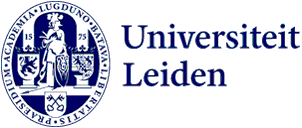
A guide to the academic archive
When you think of a library, you probably picture books – or students quietly studying. But for subject librarian Rutger de Jong, most of the work happens online. ‘We never throw anything away. Everything produced here in the name of science should remain findable.’
De Jong originally trained as a chemist. He grew up in the town of Leek in the province of Groningen and started out as a science journalist, writing for magazines including Chemisch Weekblad (C2W). ‘My degree from Groningen was signed by Ben Feringa, who later won the Nobel Prize. That’s always a fun fact to mention.’
The faculty’s only subject librarian
When the publishing industry hit a downturn about ten years ago, De Jong looked for a new challenge and found one at Leiden University Libraries. He became a subject librarian – a job title you don’t hear very often these days, except still in Leiden. ‘Think of it as an information specialist, but with more in-depth subject knowledge. General information specialists work more broadly, while a subject librarian focuses on a specific academic field. In my case, that’s mathematics and natural sciences. I’m the only subject librarian for our faculty.’
His role includes deciding which scientific literature to acquire, helping researchers plan their search and publishing strategies, giving workshops to students on how to find, assess, and manage information, and being the go-to person for questions about scientific data.

Teaching how to search
‘I always say: we don’t just help you find information – we teach you how to search. We look at your strategy and offer guidance. Our aim is to get researchers started. Beyond that, there’s only so much we can do. Some of my colleagues support about thirty researchers – here we have over two thousand staff members, plus many more students.’
De Jong also works on various projects and wears several hats. ‘I’m also the repository manager, which means I oversee the archiving of publications to make them accessible via open access. At the moment, I’m busy replacing the repository infrastructure that distributes publications from Lucris. And of course, we closely follow developments in AI. You’ll already find artificial intelligence integrated into many search platforms, but you have to stay alert. Just last week, we got a request for three books – and it turned out those books didn’t exist. We suspect a student got a little too enthusiastic with AI tools. We’re realistic about it – we know students use AI, so we’d rather teach them about its limits and how to critically assess generated results.’
Why registering your research matters
Mandatory research registration can sometimes be frustrating for academics, but De Jong highlights why it’s so important. ‘Look at what’s happening in the United States. Content can disappear so easily. Diversity-related data is vanishing, and Trump has cut research funding, which affects databases like PubMed (NIH), ADS (NASA), and the now-defunct education database ERIC. That’s a worrying trend. That’s why I always tell researchers: register your research in Lucris and include a PDF, so we can keep control of our content and distribute it via our own repository. That way, it remains accessible, and open initiatives can use our data and metadata.’
‘A lot of people think I only work with books – but that’s really not the case,’ De Jong says with a smile. ‘The library is our physical shop window, of course, but most of what we do is digital. When we moved to this new location, we went from four kilometres of books and journals to about one kilometre on open shelves. But we haven’t thrown anything away – everything created or used in scientific work here should be findable.’
You can still access all that material – stored in places like the Van Steenis building and Witte Singel. Just the closed stacks at Van Steenis alone hold around seventy kilometres of printed material, De Jong notes. ‘And at Witte Singel, you can still browse the very first book we ever added to the collection. Unsurprisingly, it’s a Bible.’
What De Jong enjoys most about his job is the variety. ‘I love learning new things – especially the technical side of the work. I’ve been involved in so many different projects, and suddenly ten years have flown by. I still enjoy it immensely.
